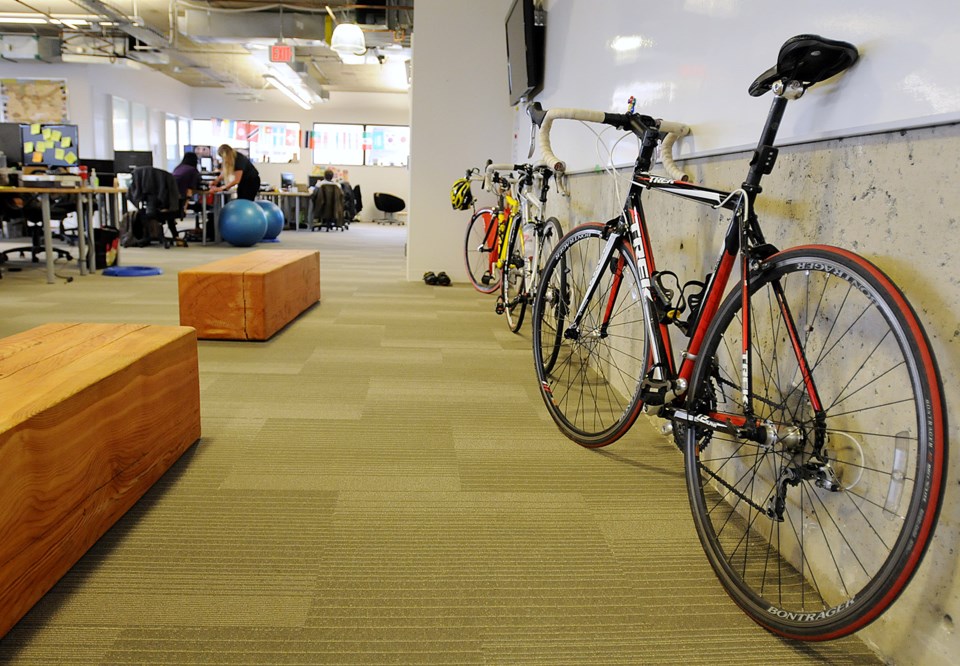Did you know that HUB, Vancouver’s cycling advocacy network, maintains a directory of bike-friendly businesses?
These are companies and organizations that actively work to promote cycling to their employees and customers. You can browse through the list, read the business profiles and check out what different organizations are doing to encourage riding.
If you’re interested in seeing how your company rates in terms of cycling friendliness, there’s another tool available through HUB: the workplace bike assessment, where HUB will send a cycling consultant to evaluate the “bikeability” of a particular office.
There are two levels of assessment. The first focuses on cycling accessibility, support for staff cyclists, and incentive programs while the second looks at physical facilities and infrastructure such as bike rooms and bike racks. Following the assessment, HUB provides a custom report with recommendations for improvement.
While there’s normally a charge for these evaluations ($350 for the basic assessment, $500 for the facilities assessment; HUB members get a 10 per cent discount), I was lucky enough to win one for my workplace, the Vancouver Public Library. This gave me an opportunity to see first-hand how a workplace bike assessment works.
It was a very interesting process. Before the assessment, the consultant sent over questions so she could familiarize herself with the cycling facilities and programs that we have available. This was followed by the site visit, where we discussed these topics in considerably more detail and she was able to check on various elements in person.
Following the consultant’s visit, we were provided with a comprehensive report, including a score sheet that rated our overall bikeability, specific recommendations for improvement, and resources to launch those improvements. The assessment criteria that HUB uses for rating businesses are derived from considerable research on the topic, the latest by-laws related to development and other best practices. They include bike parking and facilities, financial incentives for cycling, and workplace promotion.
As a member of the library’s cycling committee, I found the report extremely useful. The score sheet provided an interesting insight into how effective our efforts to support workplace cycling have been to date, as well as providing thoughtful and concrete suggestions on how we could improve in specific areas. The resource pack, which was linked to the assessment criteria, was comprehensive and helpful. Overall, the report will serve as an excellent framework for planning for the future. You can see it here.
Based on my experience, I would recommend the workplace bikeability assessment as a tool for any business looking to promote commuter cycling, whether as a place to start or an evaluation of existing efforts.
Kay Cahill is a cyclist and librarian who believes bikes are for life, not just for commuting. Read more at sidecut.ca, or send a comment to kay@sidecut.ca.



